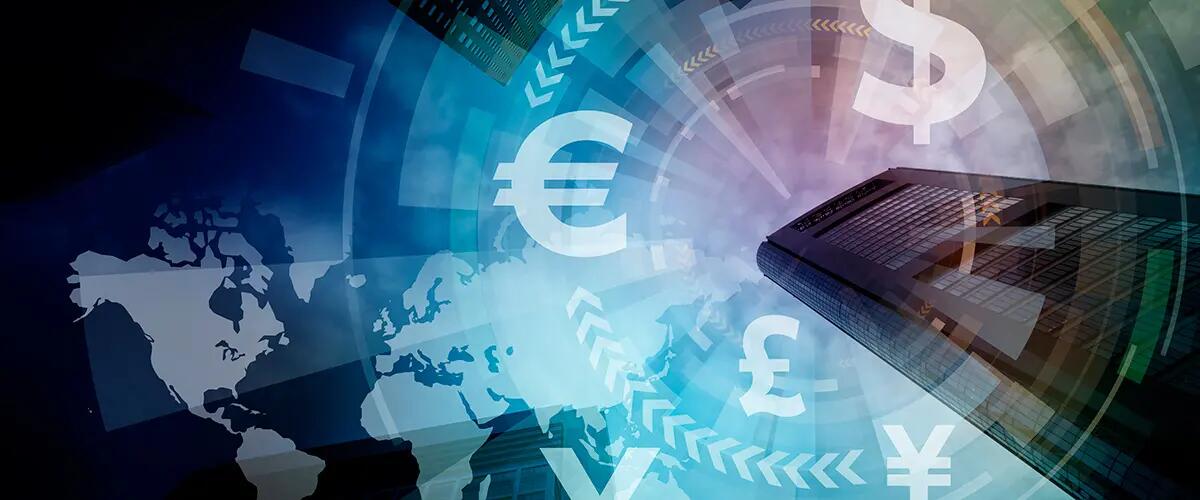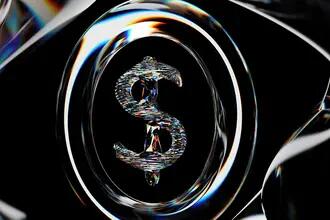
Photo Credit: ThinkstockPhotos-chombosan
The Dollar: Rumors of its death are greatly exaggerated
By Farrokh Langdana, Director, Executive MBA Program & Professor of Finance and Economics
There has been much discussion this year over the possible development of a new global reserve currency which would displace the dollar.
In an essay in March 2009, People's Bank of China governor Zhou Xiachuan had outlined a plan to expand the use of Special Drawing Rights (SDRs), a basket of currencies used by the IMF and its member countries as an accounting construct, to basically begin the process of phasing out the prevalence of the US$ as a global reserve currency. This essay has generated significant attention and in fact, has done damage to the greenback.
However, fears of a dollar-replacing SDR currency may be misplaced.
1. About 65% of China's hard currency reserves, earned since China opened its doors to world trade in 1987, are in US assets. Any precipitous drop in the US$ would be calamitous for China's “savings.” And one thing is certain, which I can say having taught in and studied China since 1993, China's macro policy, so far, has been brilliant. They will not push for anything that will be deleterious, or destabilizing, to their economy.
2. So why this talk of SDR's coming from China?
Simple. China sees the US running nonsustainable deficits and if growth gains traction in the US, they see rapid inflation which will erode away the dollar (and hence the real value of their savings). The SDR rhetoric is simply a short across the US macro bow that says “Hey, you macro-guys in the US, you'd better watch that deficit, and the impending inflation that will come with it. And keep in mind that this humongous amount of money that you are printing cannot be easily withdrawn!”
3. It is true that we have been monetizing like crazy, but why can't we simply vacuum the excess money back in to prevent inflation, when the economy picks up?
This is because of the rampant monetization that has been done by buying toxic sub-prime assets from malfeasant lenders. To "undo" the monetization, these assets, presumably now non-toxic, would have to be sold back to investors. The probability of them becoming "non-toxic" is not significantly large (less than their becoming more toxic as time progresses) - hence the worries of inflation if the economy gains traction.
4. So coming back the SDR challenge to the reserve-currency status of the US dollar - what is the final word?
We hold currency for two major reasons: As a store of value, and as a medium of exchange. It is the first one - the store of value - that is vitally important. And "value" is endogenous. A currency is awarded value by the world community. A currency becomes a reserve currency because the rest of the world is comfortable holding on to it, and accepting it in lieu of exporting goods and services. Reserve currencies are earned and not announced. It is like respect - you earn it, you do not command it or negotiate for it. So yes, the SDRs may be a decent unit for accounting (another basic function of "money") purposes, but will only be as strong as their weakest member countries' economies.
Keep in mind, that the largest component of the SDR today is still the US$ (at 44%), followed by the Euro (34%), the Japanese Yen (11%), and then the British Pound (11%). So the SDR, were it to gain acceptance, would still have to have the US$ as its main ingredient. But if the Eurozone or the UK or Japan were to tank, then this would undermine reliance on the SDR.
In summary - don't sell your US$. Yes, the dollar is under siege, and has been mauled, but, given the state of the global economy and the extraordinary resilience of the US, the dollar will continue to be awarded the status of the planet's reserve currency by the world community.
Press: For all media inquiries see our Media Kit


